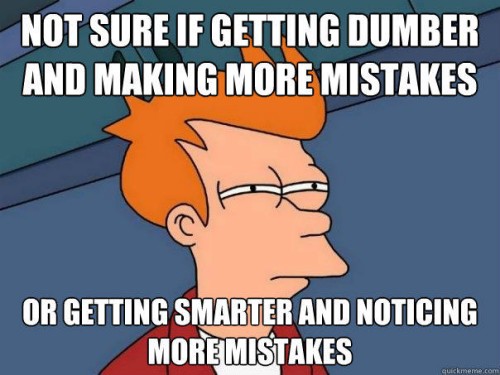To run a successful political campaign, being online isn’t an option. No matter the position being sought, digital campaigning is now firmly part of the political process. Fortunately, reaching voters through the web can be done through a variety of methods.
 Here are some of our best dos and don’ts for campaigning online in the 2023 election cycle.
Here are some of our best dos and don’ts for campaigning online in the 2023 election cycle.
Start early with your online campaign
There is a lot you can do online right now in preparation for your campaign. Begin or continue using social media, put material about yourself online and begin building your online reputation.
Don’t register the wrong domain name. Adding the year or position to the domain name can easily make the name irrelevant in the future. Using a non-specific domain, like a candidate’s name or ‘vote’ and name, can be reused over multiple campaigns.
Don’t commit to a domain name before you own it. Even if you are waiting to start creating your campaign website, do not commit to using your chosen domain name before you have secured it. There’s nothing worse than ordering campaign supplies listing a website that is wrong or, worse, owned by someone else. You don’t want to print a run of brochures or campaign signs with the the wrong website on them. Otherwise, you’ll be spending even more on stickers to correct the mistake.
Engage voters through social media
If you still think social media is still a fad, then you haven’t been paying attention to politics. Start early and get to know how it all works before your campaign kicks into high gear.
Social media has been a powerful tool for political campaigns at all levels. From viral hashtags and social media buzz to building an online community, social media is used as a marketing and engagement tool, as well as for fundraising.
Don’t think that political social media is a one-way medium. It’s a two-way street, and if you’re not willing to engage others online, then it really isn’t social. Listening provides insight and interaction drives engagement. It’s almost like building a real relationship, but online. Most politicians start their social media outreach with Facebook and Twitter. If you have the ability to maintain additional accounts, consider adding additional profiles, like Instagram.
- Social media has become more important than ever, especially after the start of the global pandemic in 2020, at it has all the ingredients for online campaigning: high engagement, low cost, and access to a wide variety of audiences. Tools like Facebook Live can help you run your campaign efficiently at little cost and with the ability to reach voters in alternative ways.
- Don’t overextend yourself. Getting on every social app out there may sound like a great idea, but if you don’t have the time or volunteers to maintain the platform, don’t bother doing it. Consider signing up for just a few accounts that will help you reach the largest number of voters and keep your message consistent across multiple platforms.
- Budget for digital advertising. Social media is a great tool that can help you connect with voters, but it’s no longer a place to throw up content without paying for the privilege. If you want exposure, you will need to dedicate some of your advertising budget toward online advertising and digital voter outreach.
- Get yourself authorized to advertise on Facebook and Google. If you plan to promote posts on Facebook or run pay per click or display ads on Google, you need to be authorized. It’s a process that changes frequently, but is absolutely necessary if you want to run ads on these platforms.

Invest in a campaign website
A website is a critical part of your online presence. It’s a place to inform voters, accept online donations, and act as a hub for social media and advertising efforts. Fortunately, the barriers to creating a website are low. There is no reason why candidates in local races should not have a campaign website. At Online Candidate, we work to make the process as simple and painless as possible.
Accept online donations. Integrating donation functionality into a website is not difficult these days. Third-party payment processors are a simple and affordable way to accept payments online. They also provide a quick and easy solution for accepting payments through your campaign website, social media and even offline. Before you start raising money, don’t forget to open your campaign bank account!
Don’t let visitors leave without a strong call to action. There are many reasons why people may leave your website. The most common ones are that they’re not seeing what they need or they don’t find what they’re looking for. It’s important to keep people engaged with your site so that they stay longer and take action. Every page of your website should ask for something. It can be a donation, a share, a volunteer request or even simple reminder to vote for you.
Do know the difference between your primary and general election. While nothing is ever really ‘deleted’ on the web, you may want to consider modifying or expanding your online messaging for the general electorate. ‘Red meat’ may get you through a primary, but a candidate usually has to attract more than just the base to win a general election.
While many candidates tack back ‘toward the center’ for a general election, this year we’ve seen candidates as far as to completely scrub their sites of certain topics and issues.
When it is time, wind down your online campaign properly. Don’t just ghost your accounts and leave everyone wondering what happened. Your supporters deserve acknowledgement and thanks.
Online Candidate websites include an easy-to-use interface, great custom design, and built-in tools designed specifically for political candidates. View our political website packages.
Related: Online Political Candidate Training Programs
« How To Win A Local Election (When You’re Broke)So You Want To Run For Judge? Here’s How To Get Started »





![Local Political Campaigning During a Crisis [Infograph] headerimg](https://onlinecandidate-792f.kxcdn.com/articles/wp-content/uploads/headerimg-150x150.jpg)

